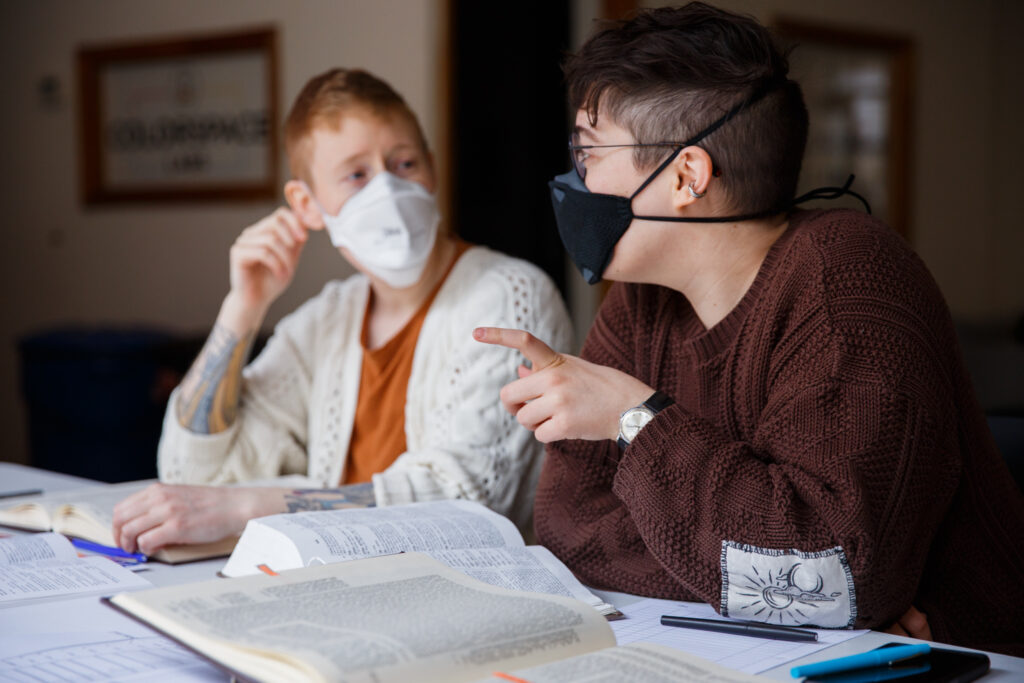This Elul, SVARA’s Mishnah Collective is taking some time to dive into Rambam’s Hilkhot Teshuva. In true Rambam fashion, his halakhot/legal claims are backed up not just with quotes from Torah, but with compelling examples and metaphors. This week we came across one of my favorite texts about teshuva:
כָּל הַמִּתְוַדֶּה בִּדְבָרִים וְלֹא גָּמַר בְּלִבּוֹ לַעֲזֹב הֲרֵי זֶה דּוֹמֶה לְטוֹבֵל וְשֶׁרֶץ בְּיָדוֹ שֶׁאֵין הַטְּבִילָה מוֹעֶלֶת לוֹ עַד שֶׁיַּשְׁלִיךְ הַשֶּׁרֶץ
Anyone who verbalizes their confession without resolving in their heart to abandon [their wrongdoing] can be compared to [a person] who immerses themselves [in a mikvah] while a [ritually unclean] reptile is in their hand. Their immersion is not effective until they cast away the reptile.
Now, a sheretz isn’t just any old reptile. It’s a somewhat vague creepy-crawler, sometimes described in the Torah as more of a swarming bug and other times more as a lizard. Either way, it is consistently, explicitly, and clearly noted as ritually unclean. Leviticus 11:23 goes so far as to call it detestable, an abomination. SVARA Fellow and Mishnah Collective Teacher Micah Buck-Yael wrote in yesterday’s Mishnah Collective wrap-up email that this is “one of the creatures that Biblical and Rabbinic literature consider definitionally unclean— i.e. nothing can change the unclean/ritually-not-fit status. It is used again and again as the example of the ‘most unclean thing’ one could interact with. Interestingly, ‘letaher et hasheretz / to purify the lizard’ also shows up several times as the example of an impossible or extraordinary task, or even as the exemplar of Rabbinic or logical genius needed to be a true leader.”
When I first learned this text earlier this year with my chevrutah, we were delighted by the imagery of cradling a lizard while taking a dunk in the mikveh. So many times throughout my life I have felt more like a sheretz than a mikveh-goer! I felt compelled by Rambam’s larger lesson, but displeased at the idea of not just putting down but throwing (יַּשְׁלִיךְ) the poor sheretz. But Rambam isn’t literally telling me to chuck a lizard—he’s asking us to think metaphorically. What does it mean, really, to not resolve in our heart to abandon a misdeed? If the mikveh is a stand-in for teshuva, what does the sheretz represent?
Just as I felt a knee-jerk protectiveness for the sheretz, so too have I felt defensive about the very things that have kept me at arms-length from teshuva. Perhaps the sheretz is an outdated coping mechanism. The actions and perspectives that once truly kept me safe, but now keep me fearful and distant. My sheretz is the behavioral patterns that once helped me see the ways that I was being taken advantage of, that now keep me from feeling gratitude for all that my loved ones do for me. Baruch Hashem, I am no longer in a place of relational and material scarcity; impulses that once kept me fed now lead me to needless burn out and a lack of generosity when left unchecked.
In Eruvin 13b, there’s a story of a talmid/student who was so learned that he could make a compelling argument as to why sheretz are actually pure, backed up with 150 reasons! I think back on all of the times that I have been so sure that my actions were right, that my defensiveness and rejection of vulnerability were justified. I could have come up with 150 reasonable arguments as to why I should get to cling tightly to my emotional sheretz. I thought I was this scholar! In hindsight, I was more like Ravina, who in that same portion of Eruvin boldly claims that he, too, can prove that a sheretz is pure—only to be quickly and decisively proven wrong by the Gemara.
How easy it would be to heal if we all only had one sheretz to send away! In reality, most of us have a whole bundle of them. I certainly do. Our arms overflow with geckos and beetles, even as we step gingerly into soothing water. But a sheretz cannot survive in the mikveh. We owe it to those we are in relationship with, to our past, to who we are right now, and to the sheretz themselves, to cast away what no longer helps us grow. And maybe we don’t need to throw our sheretz. Maybe we can gently place them down along the path, and if we pay close enough attention, we might just find a more suitable creature in the bushes to bring with us on our life-long journey through teshuva.







